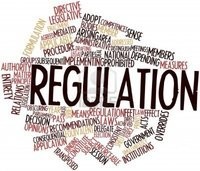Dr Nagaraj Malipatil, a clinical pharmacologist, from Bangalore, India in his review of ‘similar biologics’ in India, outlines some of the drivers of the ‘similar biologics’ market in India [1].
The fact that India has less stringent regulatory requirements than many other countries for biologicals and the low cost of research and development have promoted the development of similar biologics in the country.
In India, phase I–II clinical trials are not required for similar biologics if pharmaco-equivalence can be proved against the reference biological [2]. In addition, phase III clinical trials can be performed on as few as 100 Indian patients.
This means that while development of a biosimilar takes approximately eight years in the European Union (EU), development of a similar biologic takes only 3–5 years in India. Furthermore, approval of copy biologicals in other semi-regulated markets in South Asia, South East Asia and Latin America often only takes an additional 6–10 months for drugs already approved by the Drug Controller General of India (DCGI).
When costs are considered, development of a biosimilar in a highly regulated market, e.g. the EU or the US, is estimated to cost between US$100–200 million. While in India the cost of developing a similar biologic has been estimated at US$10–20 million. The reasons for this 90% lower cost for development are attributed to the lower cost of recruiting patients, labour and service fees, as well as less stringent regulatory approval criteria.
Conflict of interest
The authors of the research paper [1] declared that there were no conflicts of interest.
Editor’s comment
It should be noted that ‘similar biologics’ approved in India might not have been authorized following as strict a regulatory process as is required for approval of biosimilars in the European Union. The EMA (European Medicines Agency) regulatory requirements ensure the same high standards of quality, safety and efficacy for biosimilars as for originator biologicals, and also include a rigorous comparability exercise with the reference product.
Related articles
Safety concerns limit similar biologics uptake in India
Lack of health insurance limits access to biologicals in India
Partnerships driving similar biologics development in India
Domestic biologicals cost less in India
Factors affecting the uptake of ‘similar biologics’ in India
Regulation and uptake of ‘similar biologics’ in India
References
1. Malipatil NB, Haridas KM, Shruthi DP. Biosimilars and regulations: a review. J Pharm Biomed Sci. 2015;05(06):453-68.
2. GaBI Online - Generics and Biosimilars Initiative. Indian guidelines for ‘similar biologics’ [www.gabionline.net]. Mol, Belgium: Pro Pharma Communications International; [cited 2016 Jan 15]. Available from: www.gabionline.net/Guidelines/Indian-guidelines-for-similar-biologics
Permission granted to reproduce for personal and non-commercial use only. All other reproduction, copy or reprinting of all or part of any ‘Content’ found on this website is strictly prohibited without the prior consent of the publisher. Contact the publisher to obtain permission before redistributing.
Copyright – Unless otherwise stated all contents of this website are © 2016 Pro Pharma Communications International. All Rights Reserved.








 0
0











Post your comment